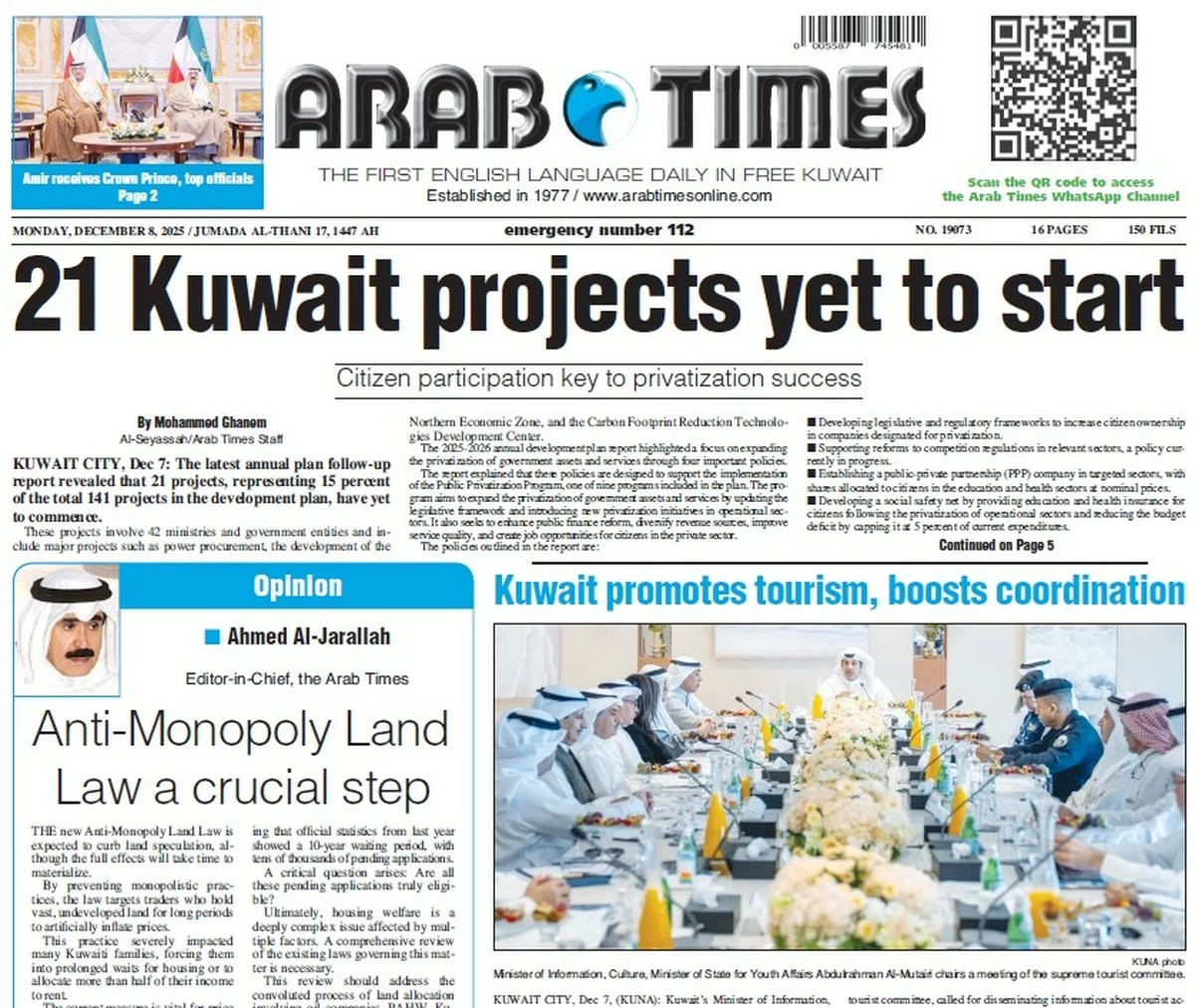12/11/2025
12/11/2025

KUWAIT CITY, Nov 12: Kuwait’s Minister of State for Communications, Omar Saud Al-Omar, announced on Wednesday that the next phase of the country’s e-government transformation will transition from conventional “digital services” to “smart journeys” designed to anticipate citizens’ needs before they access services.
Minister Al-Omar made the remarks during the launch of the “Sahel II” forum, organized by the executive committee overseeing the unified government electronic services application, “Sahel,” and its business counterpart, “Sahel Business.” The event brought together government leaders, officials, and digital service development specialists.
He said the “Sahel” platform has become a national cornerstone, redefining the interaction between citizens and government, with more than three million active users and over 120 million digital transactions completed. The minister highlighted that the initiative integrates services from more than seven government entities into a unified experience, stressing the importance of political leadership and Council of Ministers directives in accelerating digitization, integrating data, and unifying government efforts.
“It’s not just about building systems, but also about building trust. It’s not just about connecting systems, but also about connecting people’s lives simply and seamlessly,” Al-Omar said. He reaffirmed the Ministry’s commitment to developing “Sahel” into the most comprehensive and intelligent platform serving citizens and residents, supported by the National Data Exchange Platform.
Fajr Al-Yassin, a member of the Executive Committee, presented a visual overview of “Sahel” achievements, noting the platform now provides 483 services across 41 government entities. She highlighted the “newborn journey,” which registered over 6,000 births in six months, and announced plans for a second phase of the journey, including home deed issuance, marriage registration, and a central reporting system, representing a transformative approach to service delivery.
Engineer Tariq Al-Darbas, advisor to the Minister and Executive Committee member, discussed the future of government services, emphasizing the need for procedural re-engineering, inter-agency data integration, and the adoption of artificial intelligence to enhance the citizen experience. He said the goal is to move from fragmented services to integrated, proactive journeys centered on citizens’ lives.
The forum also showcased successful government initiatives via the “Sahel” platform. Colonel Bashar Hashem, head of the Executive Committee and director of the Information Systems Department at the Ministry of Interior, described the Ministry’s fully integrated digital services delivered without human intervention. Sharifa Al-Kandari, director of Information Systems at Kuwait Credit Bank, outlined the bank’s fully digital operations, which earned it the Gulf Institutional Excellence Award. Munira Al-Abduljader, director of Citizen Services at the Public Authority for Housing Welfare, presented a video conferencing service for the elderly and people with disabilities, enabling remote completion of transactions and demonstrating comprehensive digital empowerment.
The forum concluded with a closed session in which Minister Al-Omar and representatives from participating government entities discussed priorities, shared experiences, and emphasized joint coordination to advance Kuwait’s integrated digital journeys.


